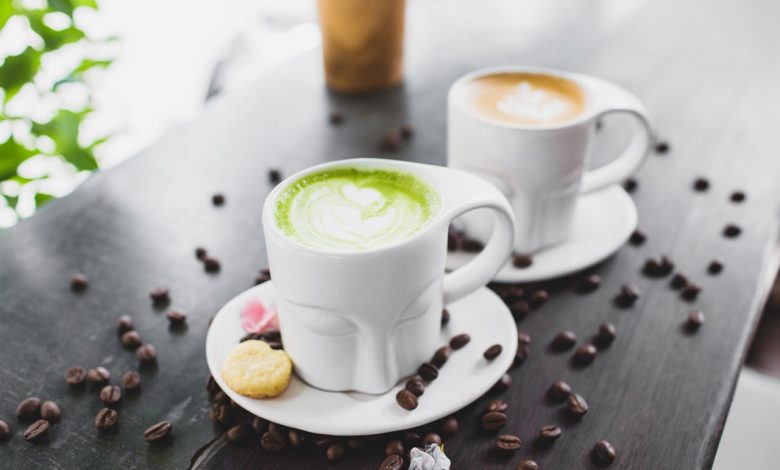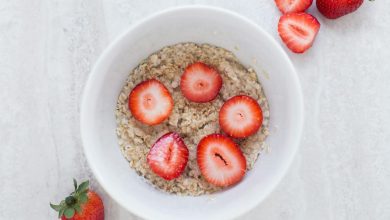Is Coffee or Matcha Better for Health?

Coffee and matcha have both become popular beverages worldwide, known for their unique flavors, energy-boosting properties, and health benefits. However, deciding which is better for your health can be tricky, as both drinks offer distinct advantages and drawbacks. In this blog, we will compare the health benefits of coffee and matcha, looking at their nutritional content, effects on the body, and potential risks, to help you decide which is the better choice for your lifestyle.
1. Nutritional Profiles: Coffee vs. Matcha
Coffee:
- A standard cup of black coffee is low in calories (about 2 calories per cup) and contains minimal nutrients, but it’s packed with antioxidants. Coffee’s antioxidants, such as chlorogenic acid, help reduce inflammation and neutralize free radicals, which can lower the risk of chronic diseases like cancer and heart disease.
- Coffee is also a good source of caffeine, with an average cup containing around 95 mg, making it a potent stimulant to boost focus, alertness, and energy.
Matcha:
- Matcha, a finely ground green tea powder, is also low in calories (about 3 calories per gram) and contains a wealth of nutrients. It’s especially rich in antioxidants like epigallocatechin gallate (EGCG), which is known for its powerful cancer-fighting properties.
- Matcha also contains fiber, vitamins (A, C, E, and K), and minerals like potassium and magnesium. This makes it a more nutrient-dense option compared to coffee.
- While matcha contains less caffeine than coffee (about 35 mg per cup), it is also rich in L-theanine, an amino acid that promotes relaxation without drowsiness.
2. Energy and Focus: Comparing the Caffeine Boost
Coffee:
- Coffee provides a quick and strong energy boost, thanks to its high caffeine content. This can help with increased focus, mental alertness, and physical energy. However, the caffeine in coffee can sometimes lead to jitters, restlessness, or a crash later in the day, especially for those sensitive to caffeine.
- For many, coffee can also improve mood and productivity, which is why it’s such a go-to morning beverage for millions.
Matcha:
- Matcha offers a more balanced energy boost. The combination of caffeine and L-theanine provides sustained, long-lasting energy without the jitters or crashes often associated with coffee. L-theanine helps to slow the absorption of caffeine, giving you a calm and focused energy that can last for hours.
- Many people report feeling relaxed but alert after drinking matcha, making it a great option for those who want a gentle pick-me-up.
3. Antioxidants and Health Benefits
Coffee:
- Coffee’s antioxidants have been linked to numerous health benefits. Studies suggest that drinking coffee regularly can help reduce the risk of chronic diseases like type 2 diabetes, Parkinson’s disease, and certain cancers. Its antioxidant properties also support heart health and may contribute to longevity.
- Coffee also has anti-inflammatory effects and can improve metabolic rate, which may support weight management.
Matcha:
- Matcha is a nutritional powerhouse when it comes to antioxidants. Its high concentration of EGCG helps to fight oxidative stress, lower inflammation, and protect against heart disease and certain cancers. Matcha contains 137 times more antioxidants than regular green tea, making it one of the most potent sources of antioxidants available.
- Matcha also supports detoxification due to its high chlorophyll content, which helps cleanse the body of toxins and supports overall liver health.
4. Mental Health and Relaxation
Coffee:
- Coffee’s stimulating effects can help enhance mood and reduce the risk of depression when consumed in moderation. However, for some people, the high caffeine content can lead to anxiety, nervousness, or irritability, especially if consumed in large amounts or late in the day.
- People with anxiety disorders or those sensitive to caffeine may want to limit their coffee intake to avoid these side effects.
Matcha:
- Thanks to its L-theanine content, matcha promotes a sense of calm and relaxation while simultaneously improving focus and cognitive function. This unique combination makes matcha a popular choice for people looking to improve mental clarity without the overstimulation that can come with coffee.
- L-theanine also has anti-anxiety properties, helping to reduce stress levels and promote relaxation, making matcha an ideal option for those who want mental alertness without increased anxiety.
5. Potential Risks and Side Effects
Coffee:
- For some people, coffee can cause digestive issues like acid reflux, heartburn, or upset stomach due to its acidity. Drinking coffee on an empty stomach can exacerbate these issues.
- Overconsumption of coffee (more than 3-4 cups a day) may lead to increased blood pressure, disrupted sleep patterns, and dependence on caffeine.
- Pregnant women and those with caffeine sensitivity should limit their coffee intake due to potential risks associated with high caffeine consumption.
Matcha:
- Matcha is generally considered safe and well-tolerated, but because it is more concentrated than regular green tea, overconsumption (more than 2-3 servings a day) can lead to excessive caffeine intake or iron absorption issues.
- Matcha contains lead, as tea plants absorb lead from the soil. While the amount is minimal and typically safe in moderate consumption, it’s recommended to stick to high-quality, organic matcha to minimize potential risks.
6. Sustainability and Environmental Impact
Coffee:
- Coffee production can have a significant environmental impact, particularly in terms of deforestation, water consumption, and carbon emissions. The coffee industry is also associated with fair trade concerns, where workers in some regions are not fairly compensated.
- Opting for ethically sourced, fair-trade coffee can help reduce these environmental and social impacts.
Matcha:
- Matcha is typically produced in a more sustainable way, especially if sourced from organic farms in Japan. However, like coffee, sustainability depends on farming practices and the source. Choosing high-quality, organic matcha ensures both environmental responsibility and better health outcomes.
Conclusion: Coffee or Matcha – Which Is Better?
When comparing coffee and matcha, both offer unique health benefits, and the choice ultimately depends on your personal preferences and health goals.
- Choose coffee if you’re looking for a strong energy boost, enjoy the bold taste, and aren’t sensitive to caffeine. It’s an excellent source of antioxidants and can improve mood and focus.
- Choose matcha if you prefer a more balanced, sustained energy boost without the jitters. Matcha is incredibly nutrient-dense and offers potent antioxidant and relaxation benefits, making it ideal for those seeking calm, focused energy throughout the day.



